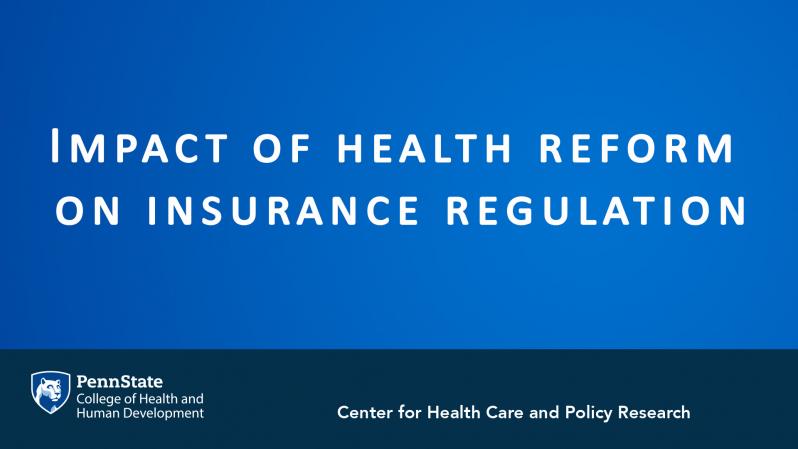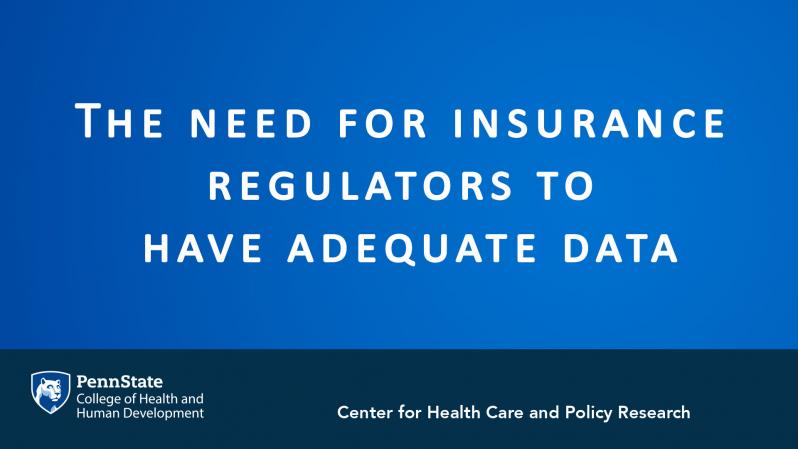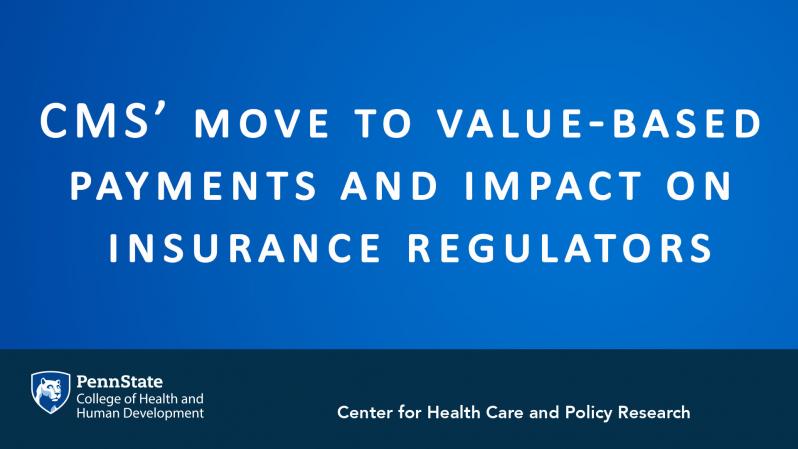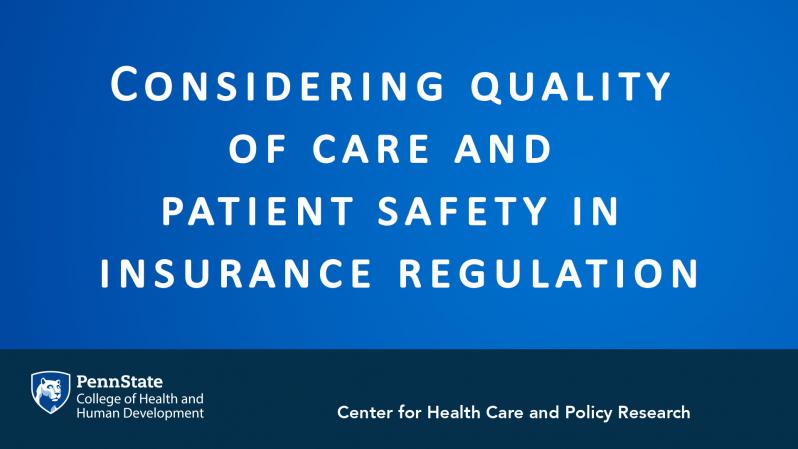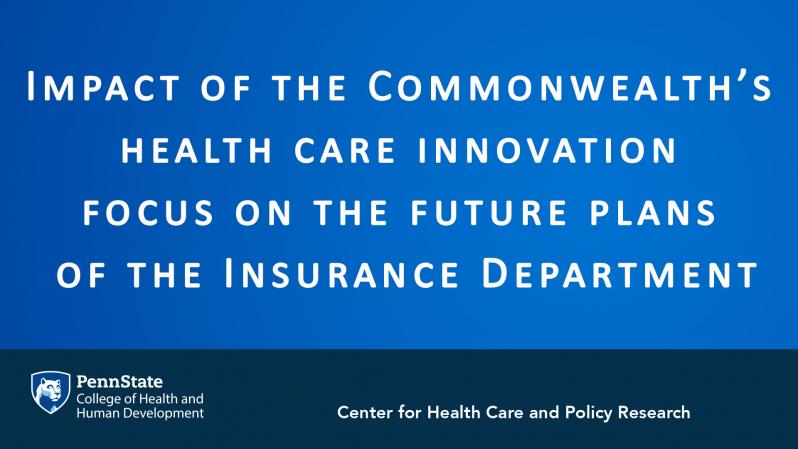Navigating insurance regulation during health care reform
Ask the Experts
Teresa Miller, Insurance Commissioner for the Commonwealth of Pennsylvania
In the third discussion in our “Ask the Experts” series, Dr. Dennis Scanlon speaks with Teresa Miller, Insurance Commissioner for the Commonwealth of Pennsylvania, to understand the realities and challenges of regulating the insurance industry during the complexities of health reform, delivery system redesign, and new payment models.
Teresa was appointed Insurance Commissioner by Pennsylvania Governor Tom Wolf in January 2015. Prior to this, Teresa served as the Insurance Commissioner in Oregon for three years, in which during this time the Affordable Care Act (ACA) was passed. In 2011, she transitioned to Washington DC where she worked in the agency implementing private market reform for the ACA.
Teresa described the role of the Department of Insurance as “protecting the ‘insurance buying public’ across lines of insurance” including health, property, and casualty insurance.
Interview Highlights
Impact of Health Care Reform on Insurance Regulation
“Healthcare reform and passage of the Affordable Care Act changed the world of health insurance regulation significantly…let me focus on three broad areas of change that we have been experiencing and I expect we will continue to experience going forward."
“In terms of regulating health insurance, historically that has been the purview of states, and we have been the primary regulators…With the passage of the Affordable Care Act, the federal government now has a much, much larger role in the regulation of health insurance… For the benefit of our consumers and our markets, we are continuing to work very closely with the federal government and do all that we can to make sure that is a really productive relationship.”
“The Affordable Care Act of course ushered in a lot of new regulations and rules for health insurers which are providing a lot of great benefits for consumers…there are a lot of new benefits that are required to be offered with health insurance policies – great things for consumers, but they also require a lot of staff time and resources for the [Insurance] Departments around the country…to make sure companies are complying with the law.”
“Finally, in a world where everyone is now required to have health insurance…we have to do all we can at the Department to be as transparent as we can about what we do and also have to work to make sure we are providing good information for consumers so they can make the best decisions for themselves and their families."
The need for insurance regulators to have adequate data
“With all the new requirements we are responsible for enforcing, data, and in particular having access to detailed data…becomes even more important to us. I think we have had conversations around the Commonwealth recently around implementing an All Payer All Claims Database which would give us access to a lot of additional data. .. We are also though looking for better tools for our staff who review policies to ensure they comply with the law…There are a lot of great protections in the Affordable Care Act and I think it is up to us as state regulators to make sure consumers are benefiting from that. I think we have a ways to go in terms of the data we need and the tools we need.”
CMS’ move to value-based payments and impact on insurance regulators
“I think [the move to value based payments] is a critical issue. It is an issue we also have to figure out nationally…As an example [ACO’s] have really only taken on upside risk, so they can only benefit and there really are only incentive payments for high performance. They haven’t taken on downside risk where they have the potential to lose money if the model doesn’t work out as intended. This is now changing though with CMS’ new rules, so I think going forward we are going to see that potential for downside risk. So it becomes really critical that all of us around the country figure out what this regulation should look like. I do think state insurance regulators could have a role here to make sure these entities are financially sound."
Considering quality of care and patient safety in insurance regulation
“When you think about the heart of insurance regulation those types of issues, safety and quality, those at least traditionally haven’t been at the heart of insurance regulation… Our role is really to protect the insurance buying public…Having said that though, I’m really excited about a lot of the conversations we are having around health innovation because I think there are opportunities for us to learn from those conversations and to then adopt into our regulation of insurance some of those ideas and concepts.”
Impact of the Commonwealth’s health care innovation focus on the future plans of the Insurance Department
“The Insurance department has been leading efforts as part of the Governor’s overall Innovation agenda. We have been leading efforts around price and quality transparency… Our focus has really been primarily on making good information available to consumers so they can make an educated and informed decision about their healthcare. Going forward, I think what we are going to be doing at the Insurance Department is taking what we learned from the conversations we have had so far with stakeholders…and focusing on some key areas like health literacy…and an all payer all claims database, and… around primary care quality metrics as well as transparency tools that might help us do a better job of making sure there is good information available to consumers.”
“Consumers today are more engaged than they have ever been because they have to be, they have got a lot more skin in the game. They are paying a lot more out of pocket for their care. It is really critical for us at the Commonwealth to figure out how we do a better job of making sure consumers have access to information about health care both quality and cost that they need so they can make the best decisions.”

